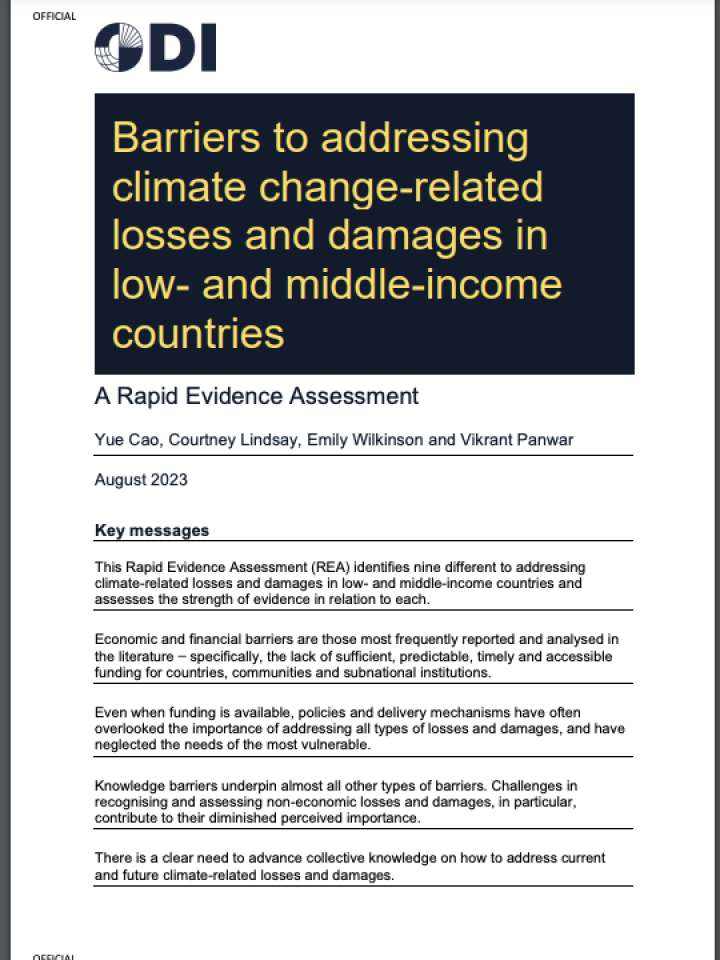Barriers to addressing climate change-related losses and damages in low- and middle-income countries
This Rapid Evidence Assessment (REA) identifies different barriers and assess how they are constraining efforts to address climate-related losses and damages in low- and middle-income countries. It also analyses how frequently these barriers are reported and analysed in the policy and academic literature, and highlights variations across contexts.
Key messages from the report include:
- This Rapid Evidence Assessment (REA) identifies nine different barriers to addressing climate-related losses and damages in low- and middle-income countries and assesses the strength of evidence in relation to each.
- Economic and financial barriers are those most frequently reported and analysed in the literature, specifically, the lack of sufficient, predictable, timely and accessible funding for countries, communities and subnational institutions.
- Even when funding is available, policies and delivery mechanisms have often overlooked the importance of addressing all types of losses and damages, and neglected the needs of the most vulnerable.
- Knowledge barriers underpin almost all other types of barriers. Challenges in recognising and assessing non-economic losses and damages in particular, contribute to their diminished perceived importance.
- There is clear need to advance collective knowledge on how to address current and future climate-related losses and damages.
Explore further
